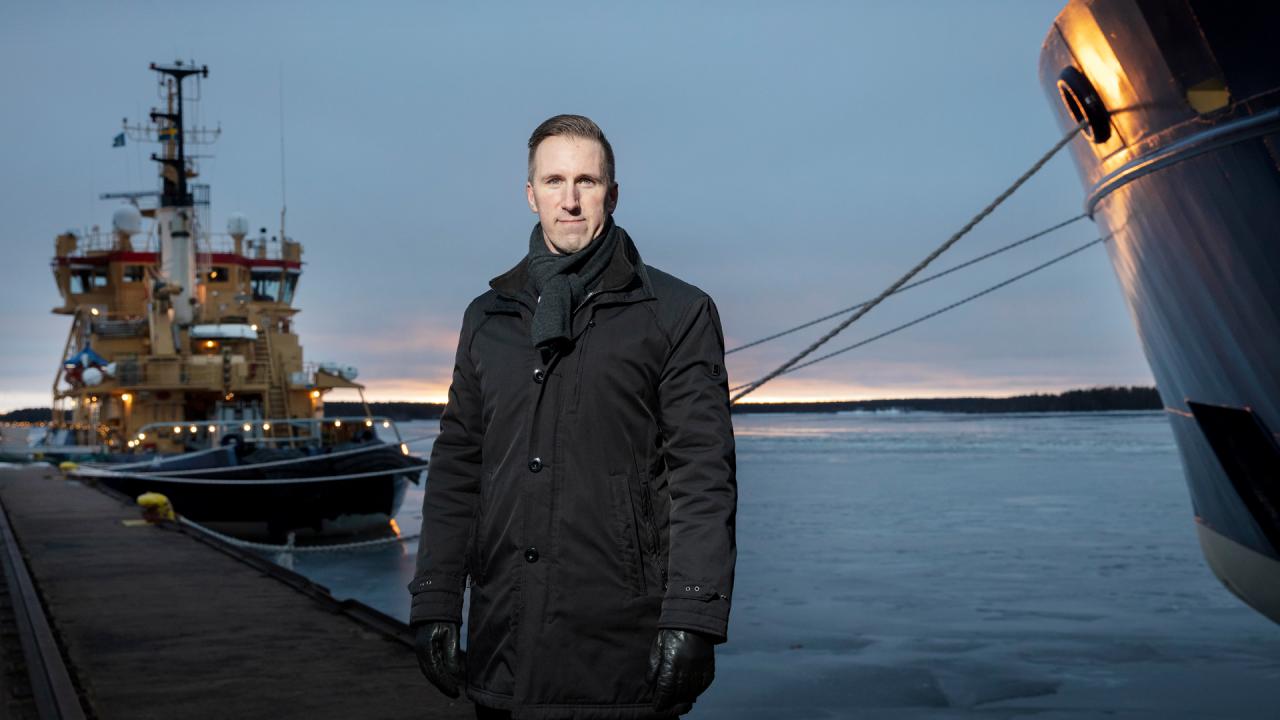Pia Berglund: Long-term thinking leads the way

When Parliament adopted the national freight transport strategy in 2018, it became clear Sweden aims to strengthen internal and short sea shipping. One of the fundamentals for achieving this is for shipping companies to invest in sustainable, environmentally friendly logistics solutions.
So says Pia Berglund, National Coordinator for Domestic and Short Sea Shipping at the Swedish Transport Administration.
“WALLENIUS SOL is showing the way by investing for the long term,” she says.
One of the national freight transport strategy’s objectives states that ‘domestic and short sea shipping has the potential to relieve road infrastructure and reduce the proportion of short-distance truck journeys, thereby reducing congestion on roads and emissions of climate-forcing and atmospheric pollution’. Her appointment as National Coordinator for Domestic and Short Sea Shipping means Pia Berglund at the Swedish Transport Administration has a key role to play.
“One of my main tasks is to develop an action plan with concrete measures that promote domestic and short sea shipping,” she says.
Pia Berglund’s initial focus has been on setting in motion collaboration between cargo owners, shipping companies and ports. She believes one success factor for shipping companies will be to offer sustainable, environmentally friendly logistics solutions, thus making everyone winners.
“WALLENIUS SOL is showing the way here by investing for the long term. It does so partly by looking at extended contract periods that share the risks between the parties and pave the way for investment in new, modern LNG-powered vessels, and partly by developing attractive, total logistics solutions.”
Pia Berglund continues:
“Sustainability is also greatly valued by the major Swedish cargo owners. This is where I believe Swedish shipping companies like WALLENIUS SOL can gain a head start by safeguarding high quality while also providing fair social conditions for crews.”
Initiatives for domestic shipping
Of the 179 million tonnes of goods handled by Swedish quays in 2018, only 14% were moved by domestic shipping. Pia Berglund recognizes the challenge in getting Swedish cargo owners to choose ships over road and rail.
“Some cargo owners have the idea that domestic shipping is complicated. I often come across practical issues concerning access to storage space, and how well transport inside port areas functions, etc. I encourage discussions in this regard. In my experience, ports and shipping companies alike are ready and willing to discuss various logistical set-ups.”
Pia has noted the great interest the ports have shown in the government’s initiatives for domestic and short sea shipping.
“They play a pivotal role as transhipment nodes, and we note how many ports are choosing to modernize their facilities with digitized, automated solutions. It’s important for ports to be accessible and efficient, and also that they begin looking into the possibility of intermediate goods storage.”
Pia Berglund believes that WALLENIUS SOL has contributed a great deal of logistical benefit for Swedish base industry.
“Together with the forestry industry along Norrland’s coast, WALLENIUS SOL has developed a common logistics structure that works for all parties. This is something utterly unique.”



